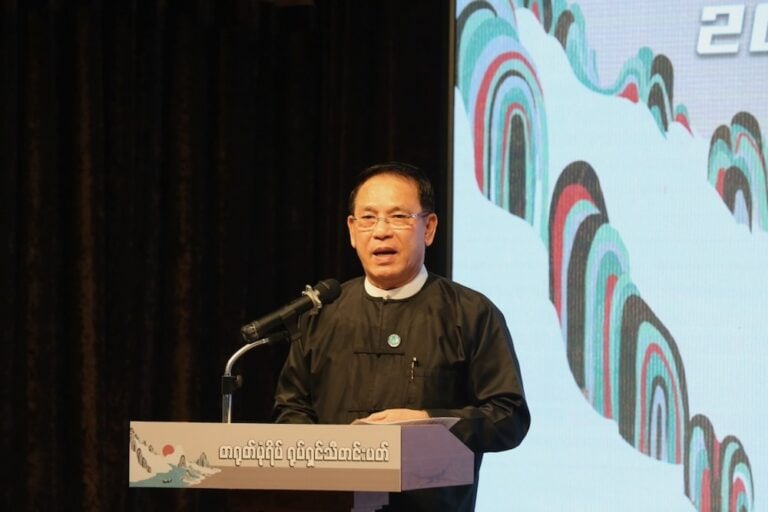(RSF/IFEX) – RSF and the Burma Media Association (BMA, the exiled Burmese journalists’ organisation) have condemned the Burmese military junta’s new directive forbidding the publication of articles about Thailand and Thai advertising in Burmese newspapers and magazines. “The military junta has just issued yet another grotesque directive which, in addition to depriving the population of […]
(RSF/IFEX) – RSF and the Burma Media Association (BMA, the exiled Burmese journalists’ organisation) have condemned the Burmese military junta’s new directive forbidding the publication of articles about Thailand and Thai advertising in Burmese newspapers and magazines. “The military junta has just issued yet another grotesque directive which, in addition to depriving the population of news about Thailand, threatens the very existence of private publications that are dependent on advertising,” deplored RSF Secretary-General Robert Ménard in a letter to Colonel Tin Hlaing, the State Peace and Development Council’s (SPDC) home affairs minister. RSF and BMA have called on the minister to revoke the directive immediately, on the grounds that it represents both an unfair financial restriction on the private press and is an act of censorship.
According to RSF and BMA’s information, on 22 May 2002, the Literary Works Scrutinising Committee, one of the military junta’s censorship agencies, told the managing editors of Rangoon’s private press that the publication of articles referring to Thailand and Thai advertising were forbidden. The editors were forced to sign an agreement in which they undertook to comply with the directive. According to the dissident radio station Democratic Voice of Burma (DVB), the editors were also ordered not to use the terms “Thailand” and “Yodaya” (the name formerly used for the Kingdom of Siam) in their publications.
A Rangoon journalist interviewed by DVB said the ban on Thai advertisements could mean that some publications will be forced to close down. Thai companies are the principal source of advertising revenue for many newspapers and magazines.
The issuing of the directive is linked to the current diplomatic and military crisis between Burma and Thailand. The SPDC decided to close checkpoints between the two countries after border skirmishes between troops from Rangoon and armed rebel groups.
In addition, “The Irrawaddy”, a magazine published in Thailand, has reported on its website that on 24 May the military junta banned the business weekly “The Market Journal” from publishing advertisements from private sector general service companies. This directive follows the arrests of several businessmen accused of failing to comply with national accounting regulations.


